The Faculty of Law, University of Jember (UNEJ Faculty of Law) had successfully conducted the 2nd International Public Lecture (IPL) on Wednesday, March 31st, 2021. In this second IPL, the theme is entitled, “Navigating Ethical, Legal and Commercial Constraints in the Australian and Indonesian Media.” The speaker of this event was Dr. Jane Ahlstrand from the University of New England, Australia.
The event was started at 9 AM (Jakarta Time) and was opened by Dean of the UNEJ Faculty of Law Dr. Bayu expected that this regular event would bring deeper knowledge exchange for the students and academia with international perspectives. Because this event is conducted regularly, he hoped that there will be more increasing enthusiasm from the participants which are mostly students as it is relevant in encouraging the UNEJ Faculty of Law in implementing Merdeka Belajar Kampus Merdeka Program.
During the presentation, Dr. Jane delivered the presentation with an overview of the media industry in Australia and Indonesia, followed by the narratives on defamation and freedom of the press in both countries. She exemplified the case of ABC, the media industry in Australia, regarding the issue of the alleged media bias. In 2019, the ABC Sydney headquarters were raided by the Australian Federal Police, targeting journalists for their role in reporting on leaked military information on unlawful killings in Afghanistan. In 2020, funding cuts resulted in around 250 job losses, and the removal of programming on ABC television, radio, and digital platforms. Most recently, Attorney-General Christian Porter began legal proceedings to sue the ABC and its journalist, Louise Milligan for defamation following the publication of an online report that did not name him directly but instead alleged a cabinet minister had been accused of rape.
She also compared the trajectories of Indonesia’s media from the New Order to the Democratic era. Under the New Order, Indonesian journalists operated in a highly restricted environment, reporting was subject to both formal and informal censorship mechanisms. In the meantime, in the democratic era, the media has become a crucial source of the circulation of new ideas, images and voices; however, journalistic freedom has become somewhat constrained by elite interests. In particular, replacing the explicit government or military interventions of the New Order, media owners and their alliances with business and political parties now play the dominant role in determining content and reporting styles.
This event was attended by 238 participants around Indonesia. They were from UNEJ, IAIN Tulung Agung, President University, UNAIR, UIN Alauddin, Kejaksaan Negeri Natuna, UNTAG Surabaya, Universitas Krisnadwipaya, Universitas Pamulang, Universitas Mataram, BLN Law Firm, Kemenkum HAM, IAIN Jember, Universitas Musamus Merauke, Polres Bondowoso, UNS, Unmer Malang, Kejaksaan Negeri Bondowoso, Universitas Abdurrahman Saleh Situbondo, Universitas Kepulauan Riau, USU, Universitas Kristen Duta Wacana, Universitas Pembangunan Pancabudi, UNIB, Universitas Kartini Surabaya, STIE IBMT, Universitas Muria Kudus, IPDN and IAIN Kediri.
For those who missed this meeting, you still can watch its video on YouTube. Please click here.
For those who want to get the presentation file, please click here to download.





